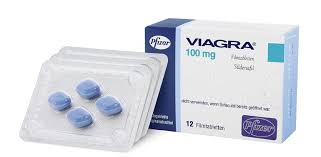
Eliquis: A Comprehensive Overview
Eliquis, a medication commonly prescribed for certain heart conditions, is an essential topic in modern medicine. As an anticoagulant, Eliquis helps prevent blood clots, which can lead to serious health issues such as strokes or heart attacks. Eliquis https://lekarnaskupaj.si/kupi-eliquis-online-brez-recepta/ has become a common query among patients looking for accessible treatment options. Understanding how Eliquis works, its benefits, potential side effects, and crucial considerations is vital for anyone prescribed this medication.
What is Eliquis?
Eliquis, generically known as apixaban, belongs to a class of drugs called direct oral anticoagulants (DOACs). These medications work by inhibiting specific proteins in the blood that are essential for the formation of clots. Eliquis is primarily used to:
- Prevent stroke and blood clots in patients with non-valvular atrial fibrillation.
- Treat deep vein thrombosis (DVT) and pulmonary embolism (PE).
- Reduce the risk of recurrence of DVT and PE after initial treatment.
How Does Eliquis Work?
The action of Eliquis focuses on inhibiting Factor Xa, a crucial component of the coagulation cascade. By blocking this factor, Eliquis effectively prevents the conversion of prothrombin to thrombin, subsequently hindering the formation of fibrin and clot development. This mechanism significantly reduces the risk of stroke and systemic embolism in individuals with conditions that elevate their risk.
Benefits of Using Eliquis

Eliquis presents several advantages over traditional anticoagulants such as warfarin, including:
- Predictable Pharmacokinetics: Unlike warfarin, which requires frequent monitoring of blood levels, Eliquis has a predictable effect, minimizing the need for regular blood tests.
- Lower Risk of Certain Complications: Clinical studies have indicated that Eliquis may lead to lower rates of major bleeding complications compared to other anticoagulants.
- Convenient Dosing: Eliquis generally requires taking a pill twice a day, making it easy to incorporate into daily routines.
Dosage and Administration
The appropriate dosage of Eliquis depends on the condition being treated, the patient’s age, kidney function, and other individual factors. Generally, for patients with non-valvular atrial fibrillation, the typical dose is 5 mg twice daily, with adjustments made based on specific criteria. It is essential to follow the prescribing physician’s instructions meticulously for optimal results.
Potential Side Effects
While Eliquis is beneficial for many patients, it is not without risks. Some common side effects include:
- Bleeding complications, which may range from mild to severe.
- Nausea.
- Fatigue.
More serious side effects can occur but are less common, such as liver problems or allergic reactions. Patients should be informed of the signs of serious bleeding, including unusual bruising, blood in urine or stools, or prolonged bleeding from cuts.

Who Should Use Eliquis?
Eliquis is typically prescribed for adults who have specific heart conditions or are at high risk for thromboembolic events. However, it may not be suitable for individuals with active bleeding disorders, severe liver or kidney issues, or those who are pregnant or breastfeeding. A thorough assessment by a healthcare provider is necessary prior to initiating treatment with Eliquis.
Interactions with Other Medications
Eliquis can interact with various medications, including other anticoagulants, antiplatelet drugs, and certain antifungal or antiviral medications. Patients should disclose all medications they are taking, including over-the-counter drugs and supplements, to their healthcare provider to avoid possible interactions that could increase the risk of bleeding or reduce the efficacy of Eliquis.
Monitoring and Follow-Up
Although Eliquis does not require routine blood monitoring like warfarin, regular follow-ups with a healthcare provider are crucial. These appointments allow for the assessment of kidney function, review of any potential side effects, and evaluation of the overall efficacy of the treatment plan. Patients should maintain open communication with their healthcare providers about any new symptoms or changes in health status.
Conclusion
In summary, Eliquis is a significant advancement in the management of thromboembolic conditions, offering patients a reliable option for reducing the risk of stroke and other serious complications associated with abnormal blood clotting. By understanding its mechanism of action, benefits, potential side effects, and necessary precautions, patients can better manage their health and treatment regimens. Always consult with a healthcare professional before starting or stopping any medications. For those seeking convenient access to Eliquis, purchasing Eliquis online without a prescription has become a popular option; however, it is critical to ensure safety and legitimacy when seeking medications online.


